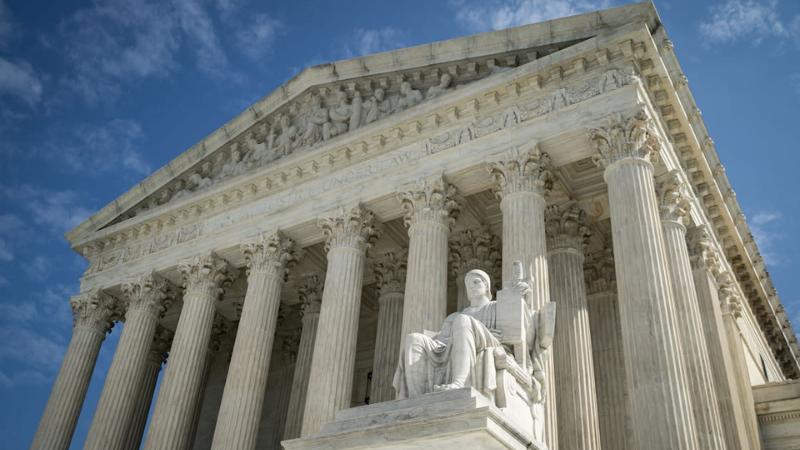
- greensea
- 10 Jan 2025 02:57 AM
- Global News
WASHINGTON — On Thursday, the Supreme Court rejected President-elect Donald Trump’s request to block criminal proceedings in his New York hush money case, allowing a sentencing hearing scheduled for Friday to proceed.
In a 5-4 decision, with four conservative justices dissenting, the conservative-majority court diverged from its earlier decisions that had favored Trump. The brief, unsigned order stated that the issues Trump sought to raise “can be addressed in the ordinary course on appeal.” The court also noted that the burden of sentencing on Trump is “relatively insubstantial” as he will not face any prison time.
The majority opinion included the three liberal justices, Chief Justice John Roberts, and conservative Justice Amy Coney Barrett.
Trump, set to return to the presidency on Jan. 20, called the decision “fair” but hinted at further legal action. “We’re going to appeal anyway, just psychologically, because frankly it’s a disgrace,” Trump remarked at Mar-a-Lago, while criticizing the case as politically motivated. He added, “I’ll do my little thing tomorrow. They can have fun with their political opponent.”
On Truth Social, Trump reiterated his intent to appeal, stating, “For the sake and sanctity of the Presidency, I will be appealing this case and am confident that JUSTICE WILL PREVAIL.”
Trump’s legal team argued that the case should not proceed, citing presidential immunity. They referenced a Supreme Court ruling from last year, which determined that while personal actions by presidents are not immune from prosecution, official acts undertaken during their tenure are protected. Trump’s lawyers also asserted that a president-elect should have the same immunity as a sitting president.
However, a New York appeals court judge denied Trump’s request to delay the sentencing earlier this week. Manhattan District Attorney Alvin Bragg urged the Supreme Court to decline Trump’s appeal, emphasizing that the case remains active in lower courts and that the justices lack jurisdiction at this stage. Bragg also argued there is a “compelling public interest” in proceeding with sentencing after the jury’s guilty verdict.
In May, Trump was convicted of falsifying business records related to hush money payments made by his then-attorney Michael Cohen to adult film star Stormy Daniels during the final days of the 2016 presidential election. Daniels testified that she had a sexual encounter with Trump in 2006, which he has denied.
Judge Juan Merchan, who oversaw the trial, postponed Trump’s original sentencing date in response to the Supreme Court’s ruling on presidential immunity. However, he later ruled that Trump’s immunity does not take effect until he is sworn in as president. As a result, Merchan scheduled the sentencing for Friday, making it clear that Trump will not face prison time for the 34 felony counts of falsifying business records.
The Supreme Court’s decisions in recent years have eased Trump’s path to regaining office despite ongoing legal challenges. The court’s immunity ruling effectively ended the election interference case brought by special counsel Jack Smith. Additionally, another ruling ensured states could not remove Trump from their ballots under a constitutional provision barring individuals involved in insurrection from holding federal office.





































